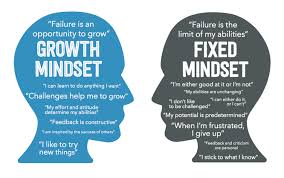
Success in school isn’t just about how smart you are — it’s about how you think about learning. This is where the concept of a growth mindset becomes so powerful. Coined by psychologist Carol Dweck, a growth mindset is the belief that abilities and intelligence can be developed through effort, good strategies, and help from others.
In contrast, a fixed mindset assumes that intelligence is static — you’re either good at something or you’re not. Unfortunately, this belief often leads students to give up easily when faced with challenges. But those with a growth mindset view mistakes as learning opportunities. They understand that failure is part of the process — not a reason to stop, but a reason to try again differently.
As a tutor, I often see the difference this mindset can make. Students who adopt a growth mindset tend to be more resilient. They ask more questions, try new approaches, and persist through difficult topics. Over time, this leads not only to better academic performance, but also increased confidence and independence.
It’s important for students (and parents) to remember that struggling doesn’t mean failing. In fact, real learning often begins when things get hard. That’s when the brain is forced to adapt, make new connections, and grow stronger.
Encouraging a growth mindset isn’t just about positive thinking. It’s about praising effort over outcome, embracing challenges, and understanding that intelligence is something you build — not something you’re born with.
Whether it’s mastering algebra or writing an essay, the most important step is believing that you can improve. Because with the right mindset, you truly can.
Julian Podgornik

